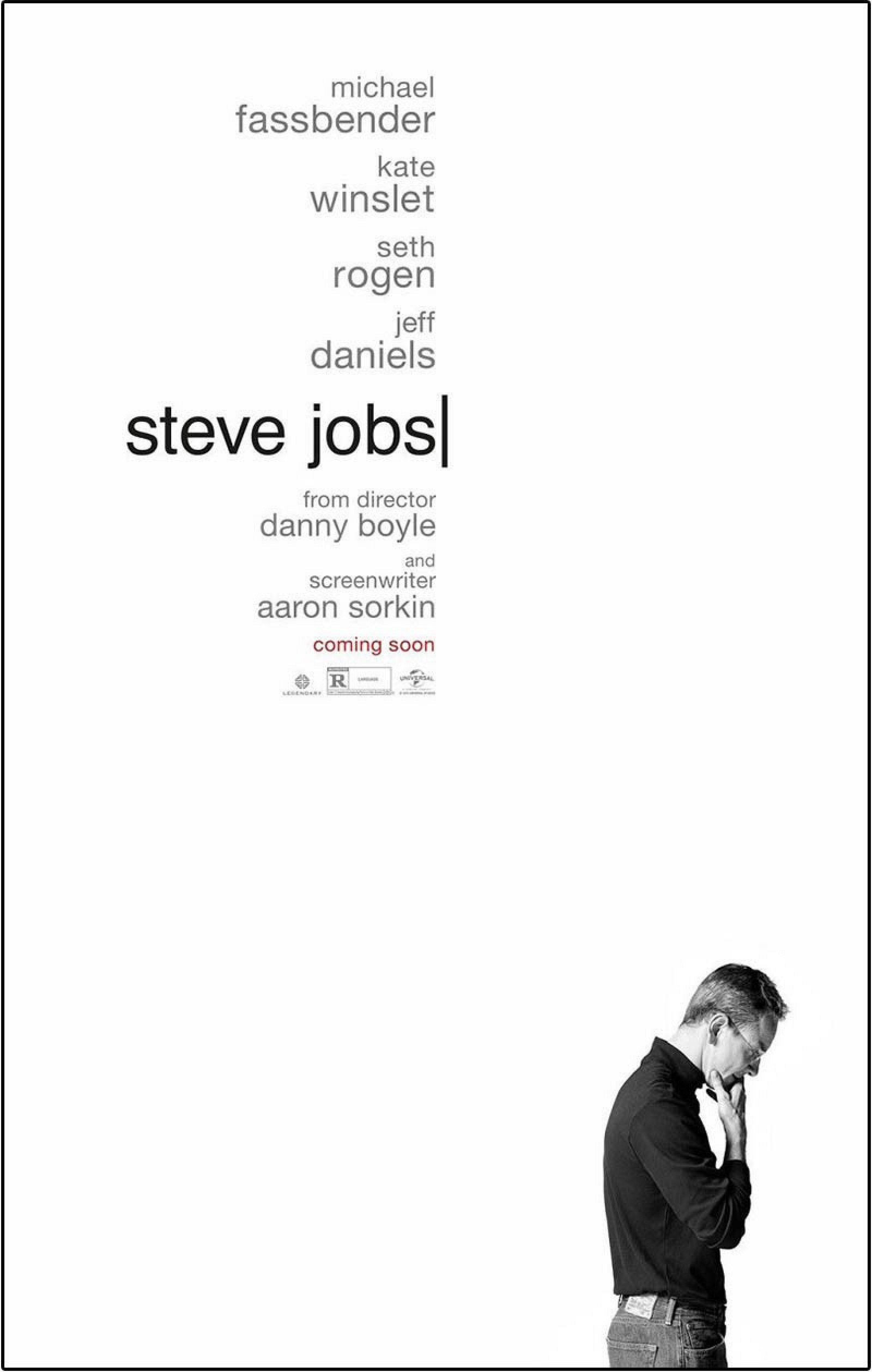
It’s not that I don’t believe it exists. There are some very bright people in this world. It’s just that when that word gets tossed around, it tends to be in its most reductive form. It takes out all the luck, timing, and failure that usually accompanies some great accomplishment and boils it down to a simple myth: that it was all the unmistakable destiny of some great individual.
In what could very well be the thesis statement of the entire film, a disgruntled Steve Wozniak says late into Steve Jobs, the most recent biopic of its titular character (this time with the pedigree of an Aaron Sorkin script and the sure hand of Danny Boyle behind the camera), “It’s not binary.”
Was Jobs a creative original or an opportunist who knew how to find talent? A savvy businessman or the beneficiary of some very fortunate timing? A caring friend and father or an egomaniac who made the people around him miserable?
The truth is probably that he was all of these things. At the end of every genius is a human being. Jobs was no exception. Fallible. Subject to his own biases, ego, and a unique brand of clouded thinking. He was a magnificently brilliant guy and he was also very, very lucky. He had a way of failing up…
Of course, all of these superlatives and observations are my own. I don’t know if they’re what Sorkin intended nor do I have any idea what the real Steve Jobs was like. There have been plenty of articles written about the accuracy and authenticity of the film. The real people who worked with Jobs have their own opinions. Some positive, some negative. They seem like fine articles and fine people. I have no reason to doubt them.
But that public outcry sort of encompasses what’s so brilliant about Sorkin’s particular version of Jobs. He feels so real it’s easy to take from him what you want, what you like and dislike – objective or not, just like it is with any real person. Just like it is with a friend or a colleague, it’s rarely so cut and dry.
In fact, in all likelihood I’m just projecting my own feelings about the character into this piece. After all, I’m just a guy, with his own unique brand of clouded thinking. This particular screen incarnation of Jobs is like a canvas onto which you can project whatever thematic inferences you want.
It’s that lack of easy answers that I find most engrossing about Steve Jobs. That complication of the word genius. The film itself has a pretty unique structure. It’s told in three acts, each in real-time in the moments just prior to one of Jobs’ big product launches. Within those three acts are several recurring storylines. His strained relationship with his daughter, his almost paternal association with former Apple CEO John Sculley, and, of course, his friendship with Steve Wozniak along with their frequent sparring sessions.
Much of it, I’m sure, is nonsense, at least when it comes to the nuts and bolts; the who and the where and the when. Somehow I doubt that poor Steve had the time for all these existential discussions, with the same handful of people, every time he launched his next make or break product. But the arguments and themes held therein help build that enigmatic character that gives the film its depth and, hopefully, paint a decent picture of who the man actually was. It felt like it did anyway.
Steve Jobs very much sounds like a Sorkin film, which means I can’t imagine the script could be less than 180 pages. The dialogue is sharp and rapid fire, with its writer’s characteristic rhythm. Most people who pay any attention to these sort of things probably already have their own opinion about Sorkin’s style, so take from that what you will, but he finds some truly touching moments tucked within that trademark banter. It took all I had to only ruin one of a handful of hauntingly brilliant lines from the film.
Danny Boyle, for his part, finds ways to inject the bland auditorium dressing rooms and backstage hallways with remarkable life. With workmanlike proficiency he captures the energy of Sorkin’s script while coaxing some great performances out of his actors.
Speaking of which, the cast is superb. To borrow a phrase from the film (because the temptation was too much and now I’m ruining two lines), there are only A-players here. Michael Fassbender, while lacking a physical resemblance to Jobs, is magnetic in the lead role. More surprisingly though was Seth Rogen as Steve Wozniak, stealing the show from a supporting cast that also includes Jeff Daniels and Kate Winslet. I could have watched an entire film’s worth of the dynamic between Steve and Woz; they were that good together.
According to Wikipedia (because when I do research, I do it right), there have been five different biopics/documentaries released about Steve Jobs in the five years since his death. By all accounts, that seems excessive. Yet, given what I’ve seen from Sorkin and company, I feel the need to say it – I’m glad there was a sixth.

